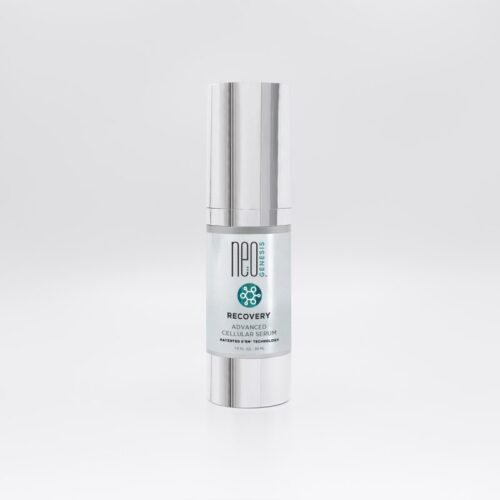Eczema
NeoGenesis medical grade skin care products can bring soothing relief from the discomfort of eczema. They naturally infuse nutrient rich S²RM® molecules to the skin. By providing the best climate for calming and hydrating the skin, areas of irritation are reduced, allowing symptoms like itch, redness and irritation to subside. Flare ups are reduced as the skin becomes healthier.
BENEFITS
- Relieves skin irritation
- Calms and soothes the inflamed area
- Breaks the itch-scratch cycle
- Reduces redness
- Smoothes skin texture
- Promotes healthy skin
RECOMMENDED PRODUCTS
- Rated 5.00 out of 5$3.50 – $62.50 Select options This product has multiple variants. The options may be chosen on the product page
Intensive Moisturizer, Moisturizers, Oncology Friendly, Shop All
Rated 5.00 out of 5$10.00 – $187.00 Select options This product has multiple variants. The options may be chosen on the product page
Acne, Aging Skin, Oncology Friendly, Recovery, Serums, Shop All
Rated 4.96 out of 5$62.00 – $395.00 Select options This product has multiple variants. The options may be chosen on the product page
Aging Skin, Barrier Cream, Barrier Renewal Cream, Moisturizers, Oncology Friendly, Shop All
Rated 5.00 out of 5$10.00 – $187.00 Select options This product has multiple variants. The options may be chosen on the product page
Home Care Protocol
MORNING
STEP 1: Pump 3 spritz of MB-1 onto a cotton round and 3 to the area. your skin. Sweep it across your skin to lightly refresh and hydrate your skin.
STEP 2: Apply Recovery.
STEP 3: Apply Intensive Moisturizer.
STEP 4: Apply mineral sunscreen SPF 30 or higher to protect your skin from the sun.
STEP 5: Spritz MB-1 across the face and neck. If possible, spritz MB-1 across the skin mid-day. Use it cold for added relief from itch, as needed.
EVENING
STEP 1: Use Cleanser once in the evening, or twice if wearing makeup and be sure to rinse with warm, never hot water. makeup).
STEP 2: Apply Recovery.
STEP 3: Apply Intensive Moisturizer.
STEP 4: Spritz MB-1 across the face and neck. Use it cold for added relief from itch, as needed. Consider having it on your bedside table to soothe any itch that arises through the night.
Featured Videos
FAQS
What is eczema, and what causes it?
Eczema is a chronic inflammatory skin condition that causes redness, itching, dryness, and sometimes flaking or cracking of the skin. The most common type is atopic dermatitis, though there are several forms.
It’s caused by a combination of factors, including a compromised skin barrier, genetics, immune system overreaction, and environmental triggers like allergens, irritants, temperature changes, or stress. When the skin barrier is weakened, it allows moisture to escape and irritants to enter — leading to inflammation and flare-ups.
What triggers eczema flare-ups?
Eczema flare-ups are often triggered by a mix of irritants, allergens, and lifestyle factors that weaken the skin barrier. Common triggers include harsh skincare products, fragrances, hot water, stress, extreme weather, and allergens like pollen or pet dander. In some cases, diet, gut health, or microbial imbalance can also play a role. Understanding and avoiding your unique triggers is essential for managing eczema and preventing flare-ups.
How does diet affect eczema?
Diet can influence eczema by affecting inflammation, immune responses, and the health of the gut–skin connection. While food isn’t always the root cause, certain foods may trigger or worsen flare-ups in some individuals—especially those with food sensitivities or allergies (like dairy, gluten, eggs, soy, or processed sugars). An imbalanced gut microbiome may also contribute to eczema, so supporting gut health through a nutrient-dense, anti-inflammatory diet can be helpful. Keeping a food journal or working with a professional can help identify personal dietary triggers.
How can I soothe an eczema flare-up quickly?
To soothe an eczema flare-up quickly, focus on calming inflammation and protecting the skin barrier using Recovery and Barrier Renewal Cream or Intensive Moisturizer. You can also use cool compresses to reduce itching and redness. We have had many people find relief of itch and irritation using MB-1 cold, so pop it in the fridge for extra soothing benefit. Avoid known triggers like hot water, harsh products, or scratching the area, if possible.
Should I avoid certain products or ingredients?
Yes, if you have eczema, it’s important to avoid products and ingredients that can irritate or further weaken your skin barrier. Common triggers include fragrance, products with multiple essential oils, drying alcohols, sulfates (like sodium laureth sulfate or sodium lauryl sulfate), and active products such as vitamin C, vitamin C (like retinol), and exfoliating acids (like glycolic or salicylic acid). These actives can be too stimulating for compromised or inflamed skin. Instead, opt for gentle, fragrance-free, and hydrating products that support barrier repair and are formulated specifically for sensitive or eczema-prone skin.
When should I see a dermatologist or skin professional?
You should see a dermatologist or skin professional if your eczema is persistent, severe, or not responding to over-the-counter treatments. Other reasons to seek professional help include if your eczema is causing significant discomfort, interfering with daily activities, or leading to complications like infections (often from scratching). A specialist can help with a personalized treatment plan, provide prescription-strength treatments if needed, and offer guidance on managing triggers and maintaining skin health. We recommend working with a dermatologist or skin professional from our Clinic Finder near you so that you have support and guidance on your eczema journey.








